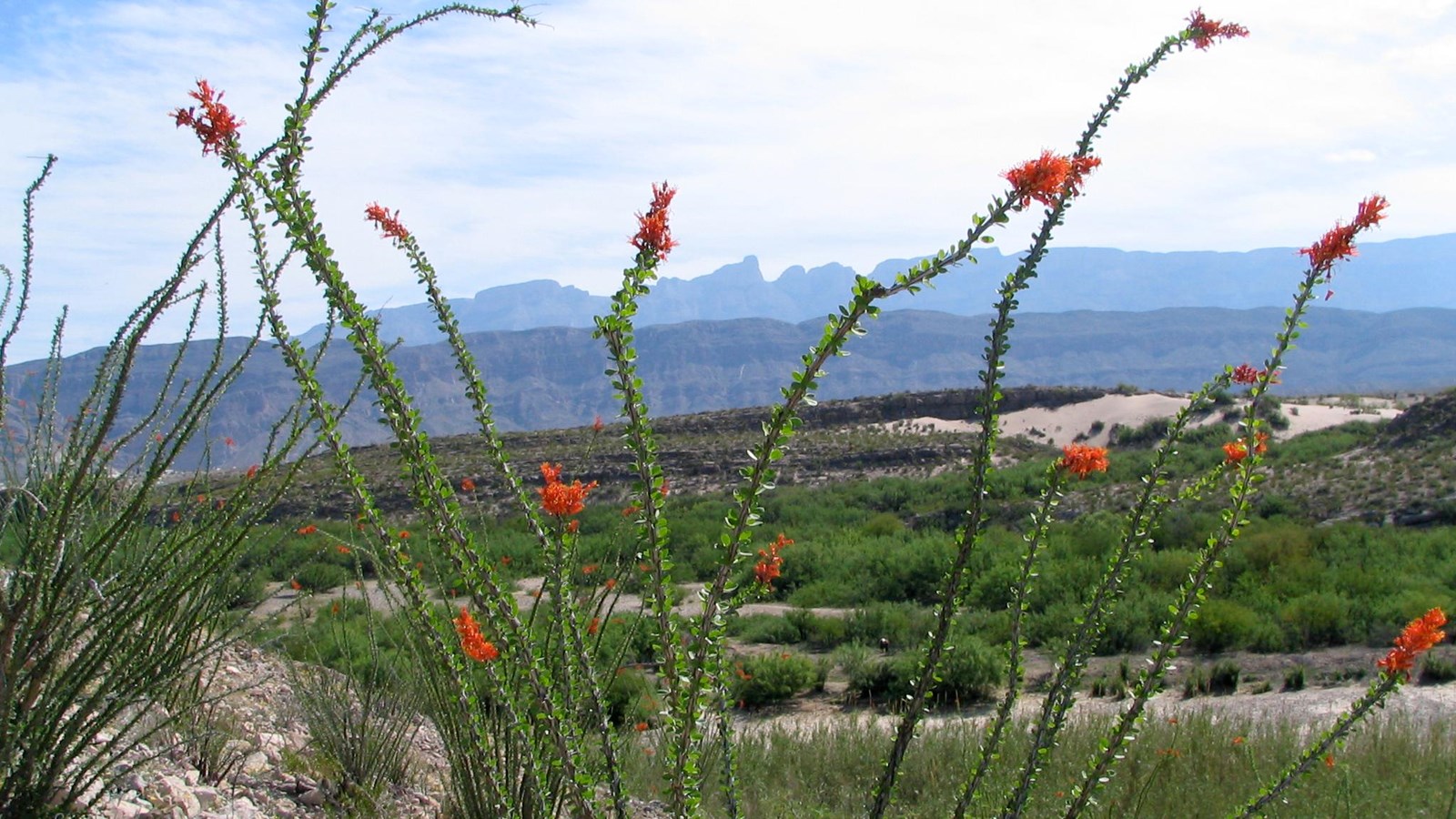Last updated: July 26, 2022
Place
Rio Grande Village Nature Trail Stop #6

NPS/J. Jurado
Quick Facts
Location:
Rio Grande Village Nature Trail
Amenities
1 listed
Historical/Interpretive Information/Exhibits
One of the most bizarre-looking plants found along this trail is the ocotillo. At first glance, ocotillo (pronounced “Oh-co-TEE-yo”) looks like a tall, spindly shrub that died - a cluster of drab, gray stalks covered in sharp half inch spines, and no obvious signs of life like leaves along the branches. This bare bones appearance is actually part of ocotillo’s desert survival strategy. Plants lose most of their water through their leaves during photosynthesis. Ocotillo and several other desert plants have adapted to desert life by moving the photosynthesis into their stems. This strategy of photosynthesis is not as efficient or as productive as in typical plants, but the plants do save a lot of water and that is the principal issue for a desert dweller. Leaves are either not produced, or only produced during wet times of the year when the water losses are affordable to the plant.
The real surprise though is in the spring when seemingly “dead stalks” of ocotillo burst into bloom. Slender clusters of bright red orange, tubular flowers form at the ends of the stalks, and in areas with abundant ocotillo plants it can look like a red haze is hanging just above the plants from a distance! Ocotillo are often mistaken for cactus, but in fact they are a member of a small, unrelated family of primarily South American plants, of which it is the northernmost representative.
The real surprise though is in the spring when seemingly “dead stalks” of ocotillo burst into bloom. Slender clusters of bright red orange, tubular flowers form at the ends of the stalks, and in areas with abundant ocotillo plants it can look like a red haze is hanging just above the plants from a distance! Ocotillo are often mistaken for cactus, but in fact they are a member of a small, unrelated family of primarily South American plants, of which it is the northernmost representative.
